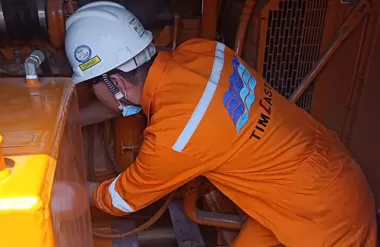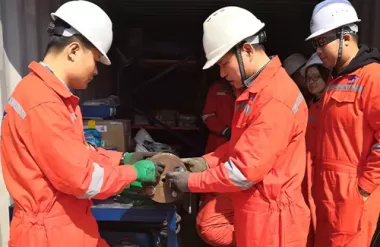May. 12, 2023
The chemical cleaning process is a method used to remove contaminants, scale, deposits, or impurities from surfaces, equipment, or systems using various chemical agents. It is commonly employed in industrial, commercial, and residential settings to restore efficiency, functionality, and cleanliness. This process involves the application of specialized chemical solutions, which react with the contaminants to dissolve or dislodge them, resulting in a clean and restored surface. In this article, we will explore the key aspects, benefits, and applications of the chemical cleaning process.
The chemical cleaning process typically follows a systematic approach and involves several stages:
a. Pre-cleaning Assessment: Before initiating the chemical cleaning process, a thorough assessment of the surface or system is conducted. This assessment helps determine the type and extent of contamination, as well as the appropriate chemicals and cleaning methods to be used.
b. Chemical Selection: Based on the assessment, suitable cleaning chemicals are selected. These chemicals can vary depending on the nature of the contaminants and the surface or equipment being cleaned. Commonly used cleaning agents include acids, alkalis, solvents, detergents, chelating agents, and specialized chemical formulations.
c. Preparation: The surface or system undergoing chemical cleaning is prepared by removing loose debris, obstructions, or components that may impede the cleaning process. Protective measures, such as covering sensitive areas or disconnecting electrical systems, may also be implemented to ensure safety.
d. Application of Chemicals: The selected cleaning chemicals are applied to the surface or introduced into the system through various methods, including spraying, brushing, immersion, circulation, or flushing. The chemicals are allowed to interact with the contaminants, breaking them down or dissolving them.
e. Agitation and Dwell Time: Agitation techniques, such as brushing, scrubbing, or mechanical actions, may be employed to enhance the effectiveness of the chemical cleaning process. The cleaning solution is allowed to dwell or remain in contact with the surface or system for a specified period, ensuring sufficient time for the chemical reactions to occur.
f. Rinse and Neutralization: After the dwell time, the surface or system is thoroughly rinsed with water or a neutralizing agent to remove the cleaning chemicals, residues, and dislodged contaminants. Neutralization is essential for systems or surfaces sensitive to residual chemicals or pH imbalances.
g. Post-cleaning Inspection: Once the chemical cleaning process is completed, a final inspection is carried out to assess the cleanliness, verify the removal of contaminants, and ensure the desired cleaning objectives have been achieved.
The chemical cleaning process offers several benefits:
a. Improved Efficiency: Chemical cleaning removes deposits, scale, or contaminants that can hinder the performance and efficiency of equipment or systems. By restoring cleanliness, chemical cleaning enhances operational efficiency, reduces energy consumption, and prolongs the lifespan of the equipment.
b. Preventive Maintenance: Regular chemical cleaning can prevent the buildup of scale, rust, or other contaminants, minimizing the risk of equipment failure, corrosion, or operational issues. It helps maintain optimal performance and prevents costly repairs or replacements.
c. Cost Savings: Chemical cleaning can be a cost-effective solution compared to the alternative of replacing or repairing equipment. By extending equipment lifespan, improving efficiency, and reducing downtime, chemical cleaning contributes to cost savings in the long run.
d. Safety and Compliance: In industrial settings, chemical cleaning can be crucial for maintaining safety standards and regulatory compliance. It helps remove hazardous substances, contaminants, or residues that may pose health risks or violate environmental regulations.
Tianjin TimEast Sub-sea Pipeline Testing And Service Limited(Hereinafter referred to as TimEast) subsidiary company was developed on 2012 and has been performing process and pipeline pre-commissioning and commissioning services.
If you need more information or support on chemical cleaning pipes, please don’t hesitate to contact us at dorothy.yang@timeast.com.cn, we will try our best to support you.
Dec. 12, 2023
The Basics of Electric Heat Trace Technology In the world of industrial processes and temperature control, Electric Heat Trace (EHT) technology plays a crucial role.Nov. 23, 2023
Performing a Leak Test: Step-by-Step Guide A leak test is a crucial procedure to ensure the integrity of a system and identify potential leaks in pipes, joints, or containers.Nov. 08, 2023
Main Steps of a Flange Management Procedure Flange management is a critical aspect of maintaining the integrity and reliability of piping systems in various industries.

